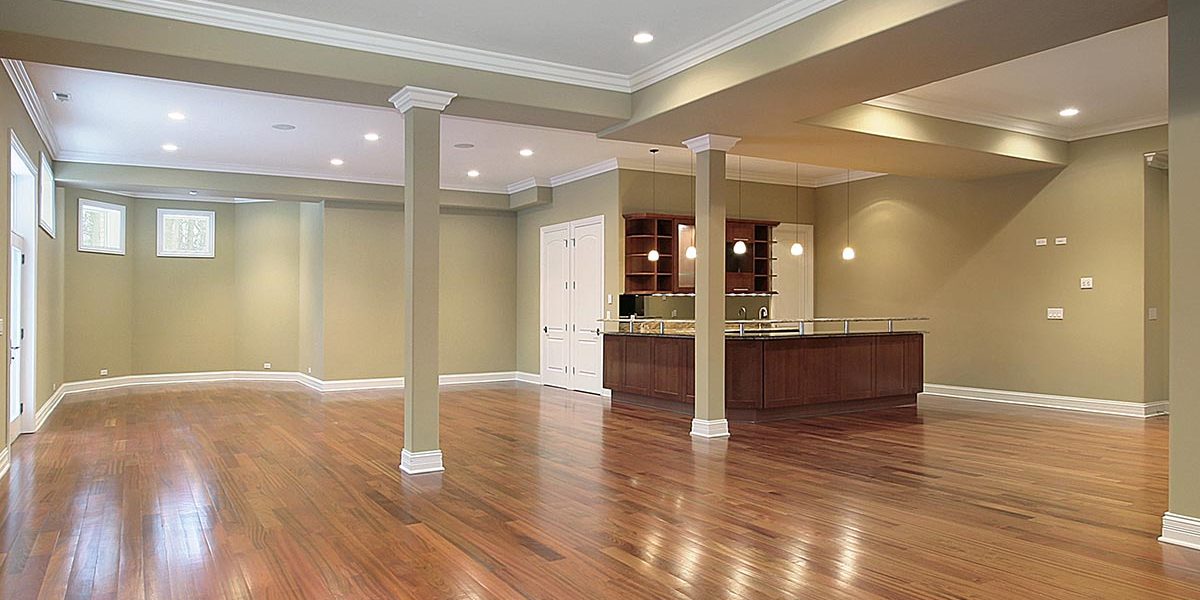Basement Flooring Options
When it comes to selecting the best option for basement flooring, homeowners are presented with a multitude of choices. Various factors should be considered when deciding on the ideal flooring material, from affordability to durability and comfort. This guide will help you navigate some popular basement flooring materials and make an informed decision for your home.
If you’re looking for cheap basement flooring options over concrete, vinyl and laminate are two cost-effective solutions. These flooring materials have come a long way in terms of durability, aesthetic appeal, and ease of installation. Vinyl flooring, in particular, is a popular choice for concrete basement floors due to its ability to withstand moisture and resist dampness. On the other hand, laminate flooring offers a wide range of designs and styles, making it an attractive and affordable option for homeowners.
For those who prioritize durability in their basement flooring, tile materials such as ceramic, porcelain, and stone are worth considering. Known for their longevity and timeless beauty, these tiles can last decades when properly installed and maintained. They can also add an elegant touch to any basement space, enhancing its appeal.
However, it’s essential to remember that tile flooring may feel colder and less comfortable underfoot than carpet or vinyl flooring. Rubber flooring or a floating floor can provide a softer, warmer surface for homeowners seeking a more comfortable option. Rubber flooring is particularly suitable for basements used as playrooms or workout spaces, as it offers excellent cushioning and slip resistance.
Lastly, wood flooring is an excellent choice for those seeking a balance between comfort, affordability, and durability in their basement flooring. Available in various styles and finishes, wood products allow homeowners to find a type that complements their basement decor. While wood flooring may require a higher initial investment than vinyl or laminate, it can last for decades with proper care and maintenance, providing a comfortable and warm underfoot feel similar to carpet.
When choosing the right flooring for your basement, consider affordability, durability, and personal comfort preferences. Whether you opt for vinyl, laminate, tile, rubber, or wood flooring, selecting the suitable material can transform your basement into a functional and inviting space.
Carpet
Carpet is considered the most comfortable of basement flooring options. It’s soft underfoot and not cold, regardless of the weather outside. Today’s carpeting choices include easy-clean, recycled, and natural fiber options in addition to modular carpet tiles with built-in padding—all available in a dizzying array of colors and textures to appeal to every aesthetic taste.
Carpet is considered medium in terms of durability and cost. The newer carpet tiles make it easy and cost effective to replace soiled or damaged spots in individual tiles without replacing the entire floor covering. If choosing a traditionally rolled carpet, you can certainly find carpet choices to fit a small budget; the trade-off is durability. Regardless of which carpet option you choose, within 8–10 years, you will want to plan to replace it.
Tile
Stone, porcelain, and ceramic tile are generally not considered comfortable basement flooring options. They are hard and sometimes cold underfoot. Hard tiles are chosen for basement floors for reasons other than comfort:
- Durability – Tile is extremely durable. With proper care, it should look beautiful for its lifetime and last as long as your home.
- Aesthetics – Tile is beautiful. Whether you choose a solid, matte, dark color ceramic tile or choose to lay out pattern on the floor in natural stone tile, tile’s beauty is timeless.
- Cost – Tile is considered low to medium in terms of cost. There are many budget-friendly ceramic and porcelain tile options available. Couple a low-cost option with tile’s inherent durability and you’ll save thousands of dollars over a 10-year period compared to carpet.
Wood
Wood, like carpet, is both a comfortable and an attractive basement flooring option. Today’s wood flooring choices include natural woods in varying thickness with their associated underlayment requirements and engineered laminate wood products. One of the advantages of wood over carpet is that, in addition to being as comfortable and as attractive as carpet, both natural and engineered wood flooring is very durable. Many engineered wood products now come with a lifetime warranty. Most natural hardwood, with good care, will last as long as your home.
Engineered wood products were created to meet the need of the homeowner who wanted the look of hardwood floors without a huge budget. These products tend to compete well with the cost of carpeting. Traditional, natural wood floors can be pricey. In addition, you may need to factor in the cost of long-term maintenance for traditional hardwood flooring, which eventually needs refinishing.
Nature Stone
Nature Stone is popular for natural stone flooring in basements and garages due to its durability and attractive appearance. The flooring is made from natural stone. It is a porous and breathable material that allows moisture to pass through, making it less prone to mold and mildew growth. Nature Stone is a slip-resistant flooring option, making it ideal for high-traffic areas. It is available in a variety of styles and colors, allowing for customization. The cost of Nature Stone depends on the size of the space; usually, it is priced per square foot, making it an affordable option for homeowners.
Homeowners need to know how much Nature Stone flooring to buy for the space they want to use. The flooring cost is generally reasonable and competitive with other natural stone options. Additionally, Nature Stone is a durable option, meaning homeowners can expect many years of use from their investment. This makes it an excellent choice for those looking for an affordable and long-lasting natural stone flooring solution for their home. Stone is a popular option for garage flooring because it’s slip-resistant and durable. It’s an excellent investment for any homeowner.
Concrete
Concrete floors should be on your radar when choosing flooring options for your basement. Concrete basement floors can be sturdy and durable for homeowners looking to finish their basements. Finishing existing concrete floors is often the easiest and most cost-effective choice for homeowners. It requires minimal effort and can be done without installing new flooring.
However, it’s important to remember that while concrete floors are a practical option, there may be more comfortable choices. Unlike carpet or hardwood flooring, concrete floors can be hard and cold underfoot. This can be incredibly uncomfortable during colder months or if you spend a lot of time in your basement. Nevertheless, with the right furniture, rugs, and insulation, concrete basement floors can still be a great option that balances practicality and comfort. You can add style and personality to your concrete floor while enjoying its durability and easy maintenance. A wide range of coatings, colors, and finishes are available, so you can find one that matches your style and personality.
Aesthetically, there are dozens of concrete finishes to choose from, some of which include:
- Concrete stain – New stains are available to make concrete look like stone, leather or solid ground.
- Durable floor paint – Floor paints are available in nearly every color imaginable. Adding stripes and/or patterns can also add interest to the floor.
- Epoxy – Epoxy finishes can help repair uneven or pitted concrete surfaces. Epoxy also extends the life and eases the cleaning requirements of unfinished concrete.
Laminate
Laminate flooring can be a suitable choice for a basement. However, certain factors need to be considered before making the final decision. Firstly, basements are prone to moisture, so selecting a laminate flooring option that is resistant to moisture is crucial. This will prevent damage from water or humidity and ensure the floor’s durability and longevity. Choosing a laminate flooring option with a high moisture resistance rating or designed explicitly for basements can be a good starting point.
Secondly, the subfloor of a basement needs to be even and smooth to guarantee that the laminate flooring installation is successful. Some work needs to be done before this happens, but it’s important to check the subfloor to ensure it’s suitable for laminate installation. This will ensure the flooring is stable and does not buckle or warp after installation.
Finally, basements are usually colder than other parts of the home. So, laminate flooring that doesn’t warp or buckle in cold temperatures is essential. Adding insulation under the laminate flooring can also help regulate temperature and reduce noise. It is vital to follow the manufacturer’s instructions for installation, especially when it comes to moisture barriers and subfloor preparation. Proper installation is critical to ensure the performance and longevity of the laminate flooring in a basement.
Vinyl
Vinyl flooring is a versatile and popular option for homeowners who want a durable, waterproof solution that is easy to maintain. With a range of styles available, including vinyl tile and vinyl plank flooring, you can achieve a variety of different looks to suit your aesthetic preferences.
Vinyl tile is a popular choice for those who want the look of natural stone or ceramic tile without the high cost or maintenance requirements. Vinyl tile comes in a range of sizes and designs, allowing you to create a custom look that fits your space perfectly. This type of vinyl flooring is easy to install, and because it is water-resistant, it is a great choice for high-moisture areas such as basements, bathrooms, and kitchens.
Vinyl plank flooring is another popular option that mimics the look of hardwood flooring. Like vinyl tile, vinyl plank flooring is water-resistant, making it ideal for basements, bathrooms and other high-moisture areas. It is also highly durable and easy to maintain, making it a great choice for busy households with pets and children. With a range of styles and textures available, including hand-scraped and wire-brushed finishes, you can achieve the look of hardwood flooring without the high cost or maintenance requirements.
Overall, vinyl flooring is a versatile and practical option for homeowners who want a durable, waterproof solution that is easy to maintain. Whether you choose vinyl tile or vinyl plank flooring, you can achieve a custom look that fits your style and budget while enjoying the many benefits of this popular flooring choice.

